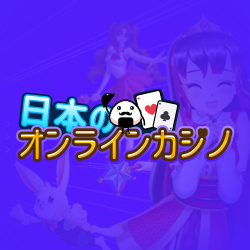Super Scribblenauts DS Review
Publisher – Warner Bros. Interactive – Developer – 5th Cell – Genre – Puzzle – Players – 1 – Age Rating – 12+ – Other console/handheld formats – N/A
Who’d want the job of a concept writer? You spend days, months, slaving over an idea. You’re sure it’s a winner. You get it all polished, every facet sparkling with innovation, then hand your baby over to the developer. Next thing you know, they’ve butchered your vision, your masterpiece. The ‘game’ they’ve produced is nothing like the beautiful shining concept you turned in. I’ve no proof, but I’m pretty sure this happens more than you’d like to imagine.
Fortunately for the concept writer for the Scribblenauts series, their mad idea not only was possible, but it worked. And it was a mad idea; a game with a magic notebook, where you could conjure up just about anything you liked, from food to weapons to animals to the Kraken itself. The game set up little self-contained puzzles and set the player loose solving them with all the tools they could imagine. It had its problems, of course, but on the most part the game worked pretty well. Given the strength of the concept and the relatively minor quibbles the critics had with the title, an improved sequel seemed inevitable.
Well, here it is. Super Scribblenauts, the great golden hope of 5th Cell and Warner Bros, to go where no dictionary-based action-adventure puzzler has gone before. It’s…okay, I suppose. Clearly 5th Cell have listened closely to their reviews and to the general playing public, and tweaked this iteration accordingly, and turned out a polished piece of software. However, I think it would be a good idea to recap the whole Scribblenauts concept for anyone fresh to the scene.


The only way to safely jump off a cliff is a parachute, or is it? Most likely not.
In Scribblenauts, and Super Scribblenauts, you control Maxwell, a boy with a pencil and a huge imagination or some sort of extradimensional superhero. It’s never really made clear. Anyhow, you move between short set piece levels, solving simple puzzles by magicking objects into existence to help, hinder or cause havoc in order to earn ‘starites’ to move on to the next stage. The dictionary in both games is astonishing, with even the most unexpected noun being summonable. This time round, all nouns can be tweaked with adjectives, allowing you to create such wonders as a ‘tiny shrew’, ‘golden shamrock’ and ‘flying saucepan’.
In Super Scribblenauts, 5th Cell have taken the extremely smart decision to improve the control scheme. In the first game, Maxwell moved about in response to where the player touched the screen. Also, the placement of items was controlled by the touchscreen. This lead to frequent and frustrating deaths in the later, fiddlier puzzles when Maxwell would suddenly leap to his doom if you miss-touched the screen by the finest amount. Now, in their wisdom, the developers have seen fit to allow us to control Maxwell with the D-pad instead. It’s amazing the difference this makes. In completing the first game, I built up an incredible hatred towards my little sprite, with his gangly walk and erratic lemming tendancies.
Unfortunately, despite all the improvements, there’s still something that doesn’t quite click about Super Scribblenauts. For all their freedom to spawn whatever you please, the levels feel too restrictive, too small and too short to be satisfying. More than half your time playing the game is spent looking at menus, informational pop-ups and listening to the same victory music over and over. What would be infinitely better than the bite-sized morsels of fun would be a more seamless experience, with less menus and hand-holding and more letting the player run riot with the world. Maybe it’s too much to ask for a Scribblenauts RPG, but the game would work well in that format. Instead of disparate, narrative-less episodes we could have side quests and an over-arching story quest. Sure, balancing a player with the ability to call into existance massive monsters to fight by his side would be tricky, but that would be one hell of a game.
Something else I would say about Super Scribblenauts is that the adjective system isn’t quite as clever as the developers seem to think it is. The ability to make a sad robot or an angry nerd is pretty handy, but the way the adjective puzzles have been built is boring. Instead of the little story-ettes that most of the puzzles are based around, the adjective puzzles are mostly three empty boxes with an item in two of the boxes and an empty space to be filled in the third. The puzzle is creating something that shares properties of the two other things. Fun the first time, boring by the umpteenth.


The game includes a much improved level editor.
Speaking of boring, the reuse of sound effects and music from the first to the second game was one of the worst decisions that the developers could have made. Admittedly, storage space is at a premium on a DS cart, so most games for the platform tend to have only a few different tunes set to repeat on the levels. However, I was so sick of hearing the Scribblenauts music by the end of the first game that the moment I heard it again on this title I muted the sound. Different tunes, and given how often you hear it, different victory music, would have gone a long way. Reusing assets just seems lazy.
One other thing I’d say about the game; looking at it on face value, you’d imagine it to be a game aimed at kids, especially from the cartoon-y graphics and mini-levels, suitable for those with short attention spans. Well, without sounding too up myself, I’m a University educated professional with a life-long love of reading, and I struggled to come up with synonyms enough to satisfy some of the puzzles in the early levels, particularly when going for gold completion of some of them (this involves doing the puzzle three times in a row without repeating any words). It’s hard to see a child putting up with it for long. This means that all the child-friendly pop-ups repeating simple concepts and puzzle hand-holding are unnecessary distractions from the enjoyment for the inevitable older player.
Super Scribblenauts was a difficult game to keep playing through. When the first game was released, the concept was enough to carry it along to completion, with the novelty of the dictionary concept enough to make up for the shortcomings. This time around, the dictionary just isn’t as new and different. There’s a definite feeling of “oh yeah, seen that, now what” that the adjective system cannot overcome. It’s unfortunate, because if Scribblenauts hadn’t have been released and Super Scribblenauts was the debut title of the series, I’d most likely be raving about it.
6/10




